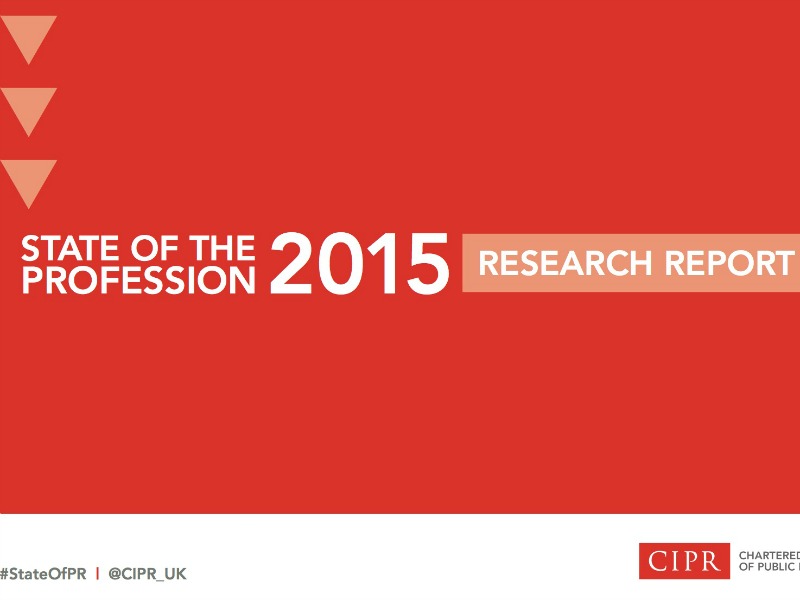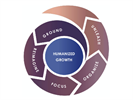Holmes Report 24 Feb 2015 // 6:29AM GMT

LONDON—New research reveals a digital skills gap within the UK PR industry, and also finds that the gender pay gap cannot be explained by traditional assumptions about equal remuneration.
The CIPR's State of the Profession report surveyed 2,000 UK PR professionals in partnership with Survation, exploring a number of the issues and challenges facing the country's PR industry.
In particular, it finds that the competencies in-demand from junior and senior hires remain focused on traditional PR skills over digital/technical skills – 64% of all PR professionals identify traditional PR skills (written communication, interpersonal skills etc.) as key competencies when hiring junior and senior candidates, compared to 20% who identify digital/technical PR skills such as SEO, HTML and coding as key competencies.
Importantly, the report suggests that the digital skills gap between young and old is exacerbated by recruitment trends – digital and social skills fail to feature in any of the top five lists of competencies sought by professionals across all sectors (in-house, consultancy etc.) looking to hire senior candidates, whereas this exact skill set is the third most in-demand for junior roles.
The majority of professionals (76%) indicated that they still spend some or most of their time working on media relations. Consultancy employees were the most likely to fall within this demographic with 45% indicating that they spend most of their time working with the media.
In-house private sector (22%) and public sector (23%) were most likely to say they spend the majority of their time on internal communications. Just shy of two thirds (65%) said they spend some or most of their time on social or digital media management.
Non-managers (21%) as well as those with less than five years industry experience (25%) were by far the most likely to say they spent most of their time on digital and social media management. In-house private sector professionals were the least likely to say they devoted the majority of their time to digital. In fact, of all respondents who said they never worked on digital or social media, in-house private sector practitioners accounted for the majority.
"My view is that digital and social skills are needed at every level of expertise and yet senior practitioners appear to resist modernity and celebrate traditional skills," said CIPR past president Stephen Waddington. "It’s an issue that is consistent with the adoption of continuing professional development across professional public relations practice. That’s woeful."
"The pace of change means that the notion of time-served as a benchmark of competence in public relations is increasingly outdated," added Waddington, noting that a "competency framework" would improve hiring practices. "Hiring the wrong person is costly for an organisation."
Equal pay
The survey also uncovers what it describes as a "pure pay inequality gap," which cannot be explained by such factors as seniority, parenthood, family life and a higher prevalence of part-time work amongst women.
Where the difference between male and female salaries is £13,887 (the mean gender pay gap), the Report notes that £5,404 can be explained by other factors such as length of service, seniority, parenthood, and higher prevalence of part-time work amongst women, yet £8,483 remains unaccounted for – described as the "pure pay inequality gap".
"The current assumption that gender pay gaps exist predominantly as result of women starting families, taking extended maternity leave, leaving full-time work and being more likely to work part-time, can now be declared dead," said CIPR board member Sarah Hall.
"Not only do we have clear evidence that because of their gender alone, women are paid £8,500 less than men, we also see that gender has the third biggest possible influence on an individual’s salary in PR. This finding alone is a call for the business of public relations to take equal pay seriously."
Hall believes that changing this situation requires a range of actions, including improving women's negotiating skills; ensuring pay systems and the responsible people are capable of delivering equal pay; and, transparency in pay structures.
"Changing the narrative about women is also going to be key," said Hall. "With the PR industry operating globally, 24 hours a day, 7 days a week, it's time to recognise that flexible working is for everyone. It's about supporting staff to achieve a balance between work and home life, and about keeping pace with the way in which the world of work is changing."
Future challenges
Technology and innovation dominate when PR professionals were asked about the challenges of the future.
Of foremost concern to 22% of practitioners is the ‘changing social and digital landscape’. This is followed by the challenge of the ‘expanding skill set required of professionals’ (13%), the ‘impact of 24/7 newsrooms and “always on” culture’ (12%), and ‘convergence and competition from other industries’ (12%).
Interestingly, ‘the poor reputation of PR in wider society’ (10%) is considered less of a challenge for the future. Least concern is given to a ‘failure to prioritize education and training’ (2%).


































.jpg)







.tmb-135x100.jpg)













